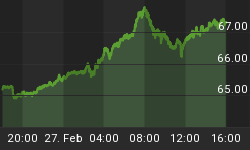The United States Geological Survey recently published its silver summary and it turned out to be yet another record year of global mine production for silver. The 2015 estimate will be revised, but in the last twenty years, only four years (2000, 2003, 2005, and 2011) have been revised downwards in the subsequent summary.
If it does happen that 2015 output comes in below 2014, that does not mean that Peak Silver has arrived as 35 years out of 115 years of global data have been dips from the previous year only to see silver production resume its upwards march.
But, one day, global silver production will dip and it will never return to the heights it had previously hit. A look at the chart below shows the global output of silver since 1900. If this was the share price of a company, you may decide that now is not a good time to invest in it since a correction would be on the cards. But this is not a chart of a company's performance, but rather an interplay of geological formations and market forces.
As you can see, the story of silver mining can be broken down into three phases. The first is flat but erratic as the new century dawned and progressed to the beginning of World War II. After this, came the post-war boom and silver reacted by climbing up a new gradient. By the time the interruption of the 1992 recession and a silver bear bottom came and went, the stage was set for an even steeper rise as China and its one billion citizens entered the market and silver production entered its third and current phase.

The question is how long this elevated gradient of global silver production can be sustained? That silver would enter an even steeper gradient of production looks highly unlikely. Maintaining the current levels depends not just on global demand, but a complex mixture of energy prices, inflationary expectations, falling ore grades, estimated geological reserves and improving extraction technology. Anyone that tells you Peak Silver has arrived based on one down year is wrong.
Peak Silver (and Peak Gold) will be an event viewed through the rear view mirror. The most likely indicator of this will be rising prices allied with falling production over a certain number of years. After that comes confiscation and rationing, subjects covered in my latest newsletter.
Further analysis of silver can be had by going to our silver blog at http://silveranalyst.blogspot.com where readers can obtain subscription details for the Silver Analyst newsletter. Comments and questions are also invited via email to silveranalysis@yahoo.co.uk.















